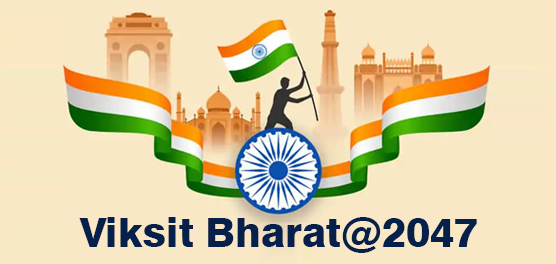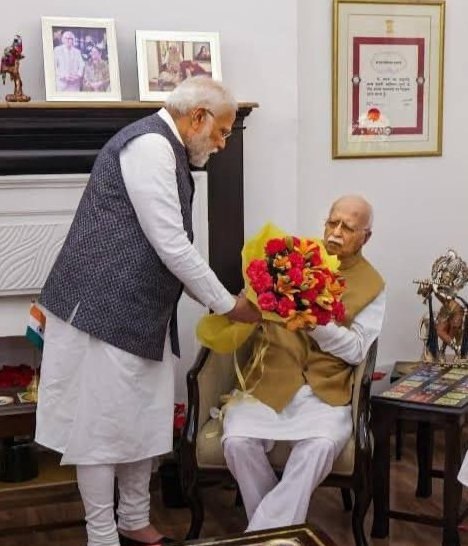PART-1
The idea of Viksit Bharat has ignited the thought process of every citizen of this land. A nation is typically considered to still be “developing” if it does not meet the defined socioeconomic criteria and the classification of a country as a developed economy is based on a combination of various indicators and measurement metrics. While there is not a universally agreed-upon set of criteria, several key indicators are commonly considered e.g. GDP, Industrialization and Diversification, Human Development Index (HDI), Health Standards, Labor Productivity, Innovation, Research, income equality and Education and Skill levels besides Political Stability.
Countries like, Switzerland, United States, Denmark, Germany, Singapore, Israel and others considered as developed nations have more than $60k GDP Per-capita and Human Development Index (HDI Index) is above 0.90 compared to developing India’s $2.5K GDP Per capita and 0.63HDI index ranking India at 132nd position.
India needs a significant push in all sectors however a major contributor towards the attainment of the vision of Viksit Bharat will be attained through a strong ecosystem of startups. Startups are crucial to economic expansion. This is because they create jobs, which leads to lower unemployment rates, which in turn signifies a more developed and better-functioning economy.
Many surveys and researches have quantified that 25.7 percent of aggregate growth that comes through innovation is accounted for by entering of firms alone. Startups have potential to grow GDP and employability multi-fold and also improve the income levels. Of all the economies in the world, the Indian economy is expected to be the fastest-growing one – and startups are expected to contribute a whopping 5% to the GDP of our country in the next 5 year.
Despite the recessionary trends in one decade and then challenges posed by Covid, India has not let its startup growth recede and has shown a remarkable resilience. In last one decade India has seen a significant growth in Startups. From a mere 350 startups in 2014,India now has close to 1.16 lakh government-recognized startups. As per a report from Traxcn, there is a clear dominance of handful of Higher educational institutions, Universities in building the startup ecosystem in India. As of 13 September 2021, India had 465 startups valued at/over $100 million. The founding team data were available for 201 of these startups.
Out of the 374 founding members, 45% (169) belonged to the Indian Institutes of Technology (IITs), followed by the Indian Institutes of Management ([IIMs] 22%; 83). Two other notable Indian academic institutions with a significant share in the overall founder pool were the Indian School of Business ([ISB] 5%; 19) and the Birla Institute of Technology and Science, Pilani (BITS Pilani) 5%; 19).Perhaps when we compare with other developed countries, Ten universities in the US produced 2,109 startup founders. Seventy-three per cent of these founders came from just the top five universities: Stanford University, Massachusetts Institute of Technology, Harvard University, University of California (UC), Berkeley, and Cornell University.
College and Universities are a great place to start thinking about the idea that can change the whole world. In fact, most remarkable startups in the world have been conceived by college students or the graduates of some of these universities be it Google, Facebook, Netflix, WordPress, Times Magazine, WhatsApp, Air BnB, Instagram, Snapchat and Fedex. Indian too has many well-established startups coming from the higher educational institutions that include Chayyos, Atomberg, Grey Orange, Dunzo, Flipkart, Zomatoo and Snapdeel.
These data points highlight that higher educational institutions have an immense potential while contributing towards the creation and growth of the startups. India stands at a crucial juncture where the promotion of startups can significantly contribute to economic growth. Indian universities can play a pivotal role in shaping the entrepreneurial landscape by nurturing a culture of innovation and providing the necessary support for budding startups. Not only these startups will create an economic impact but they can increasingly focus on creating social impact by developing solutions to address some of the country’s biggest challenges, such as poverty, education, and healthcare.
While India has seen remarkable growth in the startup ecosystem, especially in few higher education institutions, there is a huge untapped potential, given that India has around 1200 Universities, more than 50,000 colleges and around 10,000 standalone institutions. A concerted effort is needed to create an environment that fosters entrepreneurship on a larger scale across these institutions, to realize the dream of becoming VIKSIT BHARAT by 2047.
(To be continued….)
(The Author is Vice Chancellor, Shri Vishwakarma Skill University)







